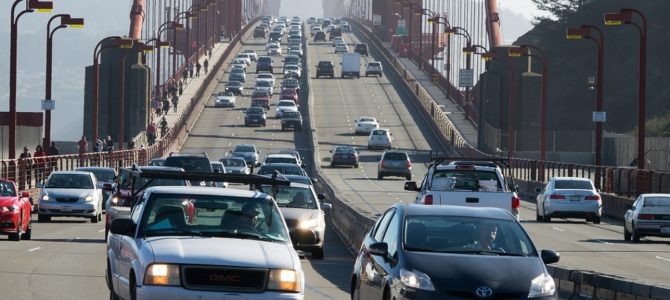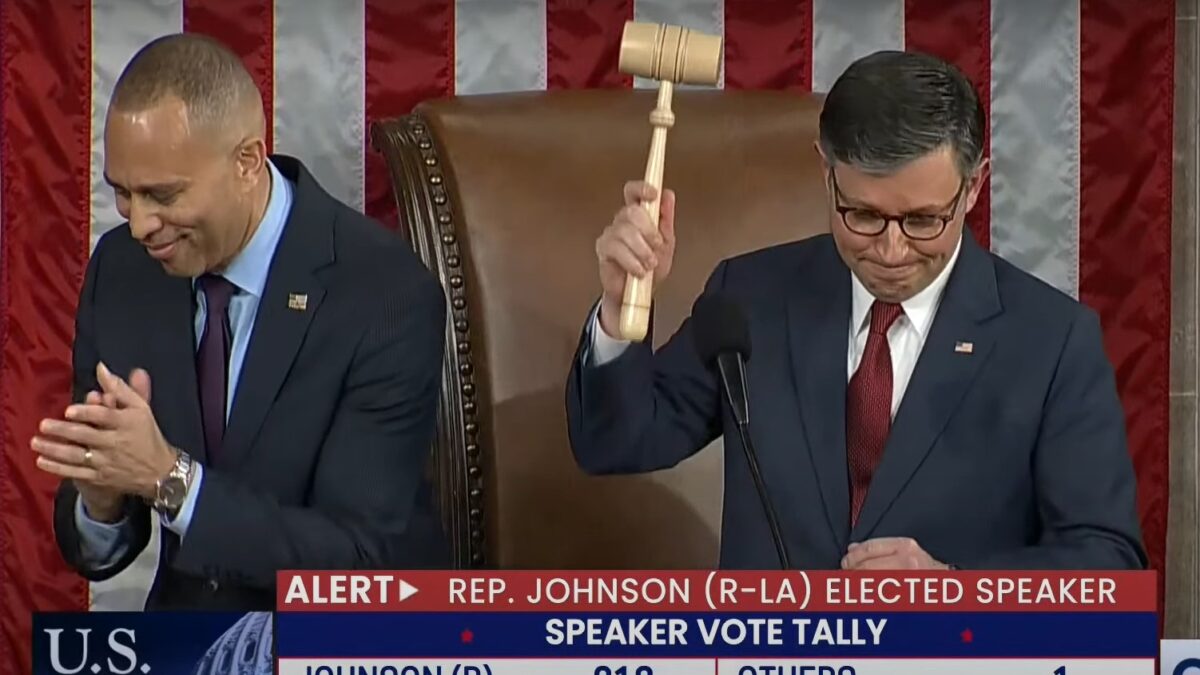
More than half of California voters have thought about moving out of state, according to a new poll from the Institute of Governmental Studies at U.C. Berkeley. A full 74 percent of the state’s very conservative voters say they’re looking into moving, and 84 percent of those cite California’s political culture as their rationale for leaving.
Unsurprisingly, the high cost of housing is mentioned by 71 percent of California voters who have considered moving out-of-state. More than half of voters ages 18 to 39 have thought about moving out of state, with more than 80 percent of that group citing high housing costs as the reason.
So, lots of Californians want to move. Who can blame them?
While wages in the state are generally higher than in the rest of the nation (especially close to the Pacific Coast), so too are housing costs, which more than eat up the higher earnings. For instance, workers moving from the tech industry in the San Francisco Bay Area to Austin, Texas, would, all things being equal, see an immediate 46 percent increase in their standard of living. Rent in San Francisco is about three times higher than in Austin.
While the main focus of the poll was Californians’ frustration with high housing costs—much of which is due to the state’s overbearing regulations—the poll’s other big takeaway was the degree to which California’s increasing ideological dominance by the left is driving conservative dissatisfaction within the state. In this, the poll’s findings are nothing short of astounding—at least for those who haven’t been paying attention.
Of California voters who identify as very conservative, 46 percent have given serious consideration to leaving the state, with another 28 percent giving relocation some consideration. Of California voters who identify as somewhat conservative, 35 percent have given serious consideration to moving, with another 31 percent saying they’ve given it some consideration. By comparison, only 16 percent of very liberal voters and 11 percent of somewhat liberal voters have given serious consideration to moving out-of-state.
When asked why they were considering leaving, 84 percent of very conservative voters cited California’s political culture as the reason, with 76 percent also citing the state’s high taxes and 61 percent mentioning the high cost of housing. Of the state’s somewhat conservative voters, 77 percent mentioned the political culture, 76 percent high taxes, and 66 percent the high cost of housing.
Saving Texas’s Crucial Electoral Votes
Over the last decade, the most common destination for outbound moves from California has been Texas. In 2013, the University of Texas and the Texas Tribune published a poll of Californians who had moved to Texas. In that poll, 57 percent identified as conservative, compared to 27 percent who identified as liberal. This appears to validate the recent poll out of California, showing a deep unrest among the state’s conservative voters.
This seems to be reinforced by a 2018 CNN exit poll for the U.S. Senate election between Sen. Ted Cruz and former representative Robert Francis O’Rourke. Voters who had moved to Texas favored Cruz by 15 percent, while native Texans supported O’Rourke by 3 percent.
The Los Angeles Times covered California’s new poll in a comprehensive article, noting that “Republicans and conservative voters were nearly three times as likely to have seriously considered moving as their Democratic or liberal counterparts.” The L.A. Times article ended with comments by William Frey, a veteran demographer who indicated his surprise at the heavy political motivation for leaving California: “I’m not surprised that some people will leave for economic reasons. But to move on the basis of political preference, to leave the whole state, seems kind of dramatic.”
He went on to warn that, “It could be that people moving to California also have political reasons for it. Maybe they move to California rather than a state that isn’t as progressive or doesn’t have as big of a social safety net.” He warned that if conservatives do decamp the state for greener pastures, California could lose much of its tax base.
But is it really “dramatic,” as Frey suggests, to move out of California because of the state’s political culture? Today we have Twitter, cancel culture, and the chilling example of Google’s James Damore. It adds up to increasing numbers of California conservatives self-censoring at work or in other public places, for fear of being accused of thoughtcrime. Living for long under those oppressive conditions can be stressful and depressing.
This, by the way, was the rationale for the formation of Hollywood’s Friends of Abe, a refuge for non-liberals in Southern California’s entertainment industry that operated for a little more than a decade before winding down. In 2016, Jeremy Boreing, then the group’s executive director, recounted an encounter in a studio parking lot a decade-and-a-half earlier.
He got out of his pickup truck and was confronted by a well-known television star. She grabbed his arm and said, “Is that your pickup with a Bush/Cheney bumper sticker in our parking lot?” “Yes,” he said, prompting the reply, “Kid, you got balls of steel.”
Now Facebook has developed a trustworthiness algorithm that has disquieting parallels to the social credit system used by the Chinese Communist Party to better keep its thumb on its subjects. It likely won’t be long until the other socials follow suit, at which point even quiet California conservatives may find themselves outed and encouraged to complete a struggle session—or leave the state.
When conservatives leave California and other states dominated by the left, they tend to move to states with lower taxes and like-minded people. Increasingly, these states are also the ones generating the highest employment growth, such as Arizona, Florida, Nevada, and Texas
While America is at risk of becoming even more polarized over time, due to the decennial reapportionment, liberal states are also at risk of losing electoral clout to places that care more about family, hard work, and talent than ideology.








